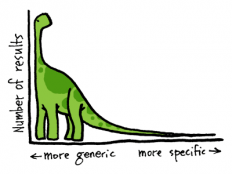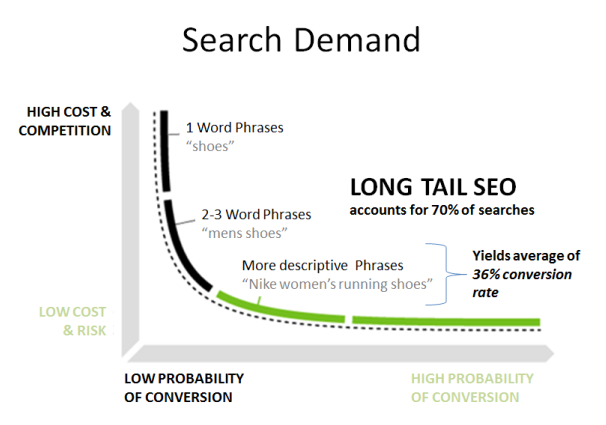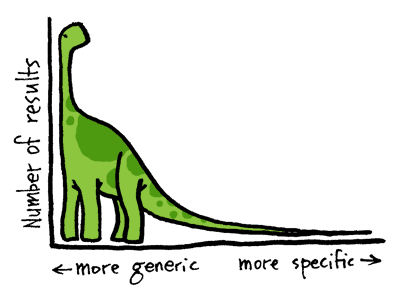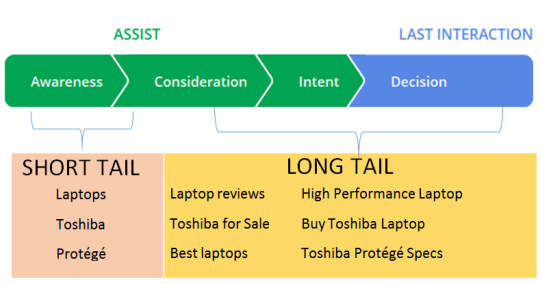Long Term vs. Short Term SEO Keywords for Your Real Estate Website
SEO can be a little intimidating to the untrained eye. In fact, many real estate agents shy away from developing a full-fledged SEO strategy because they think it’s too complicated.
This idea couldn’t be further from the truth. A strategy that’s built around targeted long term and short term SEO keywords can give your real estate website a major boost in the search engine results pages (SERPs), and it’s relatively easy to set up.
In this post, we’ll tackle how to choose long term and short term SEO keywords for your real estate website, and we’ll also talk about how to begin using those keywords in the beginning stages of your content strategy. If you’re an SEO beginner, feel free to take a look at our beginner’s guide for real estate agents.
First, determine which of your website pages you want to focus on. These pages could be blog posts, recommended search pages, or even a landing page that features an important CTA for potential leads. Assign each of these focus pages short term and long term keywords.
Before we get into the meat of this post, let’s review some important definitions related to keywords and the SEO world:
Short tail keywords: 1-2 word phrases that have high competition in search engines and a lower probability of conversion.
Long tail keywords: 2+ word phrases that have lower competition in search engines and a higher probability of conversion.
Keyword competition: how many business are currently bidding on a specific keyword.
Keyword traffic: how many people are searching for a given keyword within search engines.
Short Term Keywords
Your short term keywords should be made of long tail phrases that have lower competition and lower traffic. You can determine this information from your Google Analytics account and other websites like Ubersuggest. Choose long tail phrases with four or more words that focus on a very specific search interest – like “Boston real estate lofts in the Back Bay” or “best neighborhood for elementary school in Cambridge.”
It might seem counterintuitive to choose such specific keywords for your short term strategy, but long tail phrases act as low-hanging fruit that help you boost your website’s ranking. While there is a lower search volume for long tail keywords, there is also less competition, which means that your website has a better chance of appearing in front of people who search those terms.
When you appear on the first page of a search engine in a highly targeted search, that searcher is more likely to enter your website. Buyers who search for long tail keywords are typically more engaged and further along in the buying process. Since such a highly specific search term tends to represent high intent, people who search for long tail keywords are also more likely to convert into leads on your website.
The key is to curate a lengthy list of long term keywords (think hundreds or thousands of possible search queries). While one of these keywords won’t generate a lot of traffic for your site, the collective bunch will.
Long Term Keywords
On the other hand, long term keywords should be made of short tail or single word phrases that have higher competition and higher traffic. Your long term keywords will represent generic search queries like “Boston real estate” or “real estate agents.” People who search for these keywords are still typically in the awareness stage of the buying process, and they are usually looking for a broad overview of their real estate interests.
These short tail keywords will be extremely competitive, and your website will require a lot more time to rank for these queries. But while short tail keywords require more time and effort, the payoff is greater. If you can rank on the first page of a search engine for a high-traffic, short tail keywords, then you have the opportunity to present your website to thousands of people within a given day.
Now what?
In a nutshell, short term keywords tend to be long tail keywords with lower competition and lower traffic. Your long term keywords will be short tail or single word phrases that have higher competition and higher traffic.
Real estate companies often see the best results for their SEO campaigns when they begin their focus on long tail keywords. These search queries help you get your business off of the ground in the search engines, and they have helpful advantages over trying to rank for generic keywords with high competition. For instance, long tail keywords have a higher overall organic click-through rate at 56% of searches for four-word search phrases. Single word keywords only have a 30% click-through rate.
As you accrue links, backlink to your long tail keywords. Consider linking your long tail keywords to specific landing pages within your site instead of your homepage; this is called deep linking. Long tail keywords that are linked to the deeper pages of your site typically have a higher conversion rate for potential leads.
You should begin to see your site traffic rise, and this increase will also give your primary keywords a slight boost. Once your long tail keywords rank well in Google and Bing, shift your focus to more generic keywords. This strategy should make both sets of keywords increase in rank.
To give your keywords a boost, you should create a mix of both micro content and in-depth content. Micro content often appears on your social media pages in the form of statuses and tweets. Make sure all of your social media posts are optimized with a couple of your targeted keywords. In-depth content will most likely appear on your blog. Consider writing detailed posts that are also optimized with a handful of short term and long term keywords.
What are some of your keyword strategies? Let us know in the comments.




